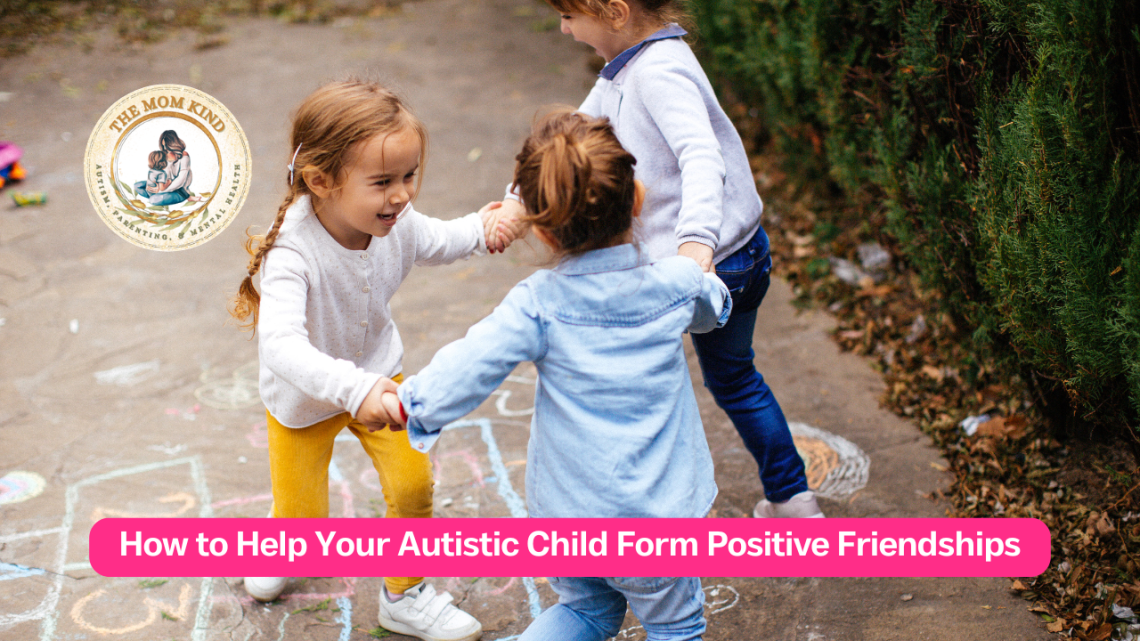Friendship is a beautiful thing. Building friendships as a child is essential for social and cognitive development. Additionally, friendships, or lack thereof, can significantly affect your physical health. Studies show that those with strong social connections live longer, healthier lives. For children with autism, however, finding and building genuine friendships can be pretty tricky.
Autism and Friendship
Neurodivergent children interpret and react to stimuli differently than their neurotypical counterparts, which strains to construct relationships with peers. If you believe your child is struggling with friendships due to ASD, here are a few things you can do to help:
Teach Non-Verbal Social Cues
Children with autism typically do not pick up on non-verbal social cues, which are crucial for maintaining a friendship or even a conversation with neurotypical children. Since about 70% of all communication is non-verbal, it’s not surprising that most autistic children report a lack of social connection with peers.
A recent study using Google Glass running a specialized facial recognition software helped children play games to learn facial expressions and sort them into common emotions such as happy, sad, or mad. When used in conjunction with their regular therapy, children showed drastic improvement in social development.
While this technology is expensive and not very accessible, it provides strong evidence that teaching children how to identify social behavior in a comfortable environment improves their social connections. You could implement this at home by playing a game of emotion charades with the family, in which you take turns acting out certain emotions and guessing what they are. Play in teams so your child may discuss what each emotion would look like with their teammate.
Explain What Friendship Is
Due to the difficulty children with autism have to navigate the nuances of social cues and friendship, you must teach them what a friend is. The naivety to building relationships and the desire to have friends can leave autistic children more vulnerable to fake friends and bullies.

Explain to your child how friends should make you feel; they enjoy spending time engaging in mutual interests, sharing, and being attentive to what you have to say. Make sure your child understands that friendship should make them feel good about themselves, and provide love and support for them when feeling down.
Practice Makes Perfect
Autistic children often need a little more time to practice new skills, especially those that do not come naturally to them, like learning social cues. Practicing new skills at home allows them to try new things in a safe environment and smooth out any issues before engaging with someone new.
Ensure you use lots of positive reinforcement when practicing. Getting excited about your child’s progress gets them excited and creates positive associations. For example, if you decide to try the emotion charades game and your kid nails it one round, cheer, clap, high five, or enthusiastically celebrate in whatever way works for your child.
Engage With Special Interest Groups
While practicing at home is essential, you must let your child explore these new skills in real life. Practice is a great way to establish a new skill, but recent studies have found that too much repetition causes more harm than good for autistic children. Repeating the skills in the same environment over and over may cause hyper specificity and impede your child’s ability to translate the skill to the real world.
Finding activities or groups centered around your kid‘s special interest is a great starting point for building friendships. It’s something that they can get excited about doing and a way to bond over shared interests with peers.
Helping Your Autistic Child Form Healthy Social Connections
Autism can make forming friendships a struggle, but it is not impossible. Autistic children can lead full lives and develop rich, meaningful friendships just like any neurotypical child. However, it’s important to recognize that social exhaustion can be a real challenge—how neurodivergent burnout hits differently means that even positive social interactions can become overwhelming. Supporting your child in balancing social time with necessary rest ensures they can build friendships without experiencing burnout. All it takes is a little extra support from loving parents like you.




